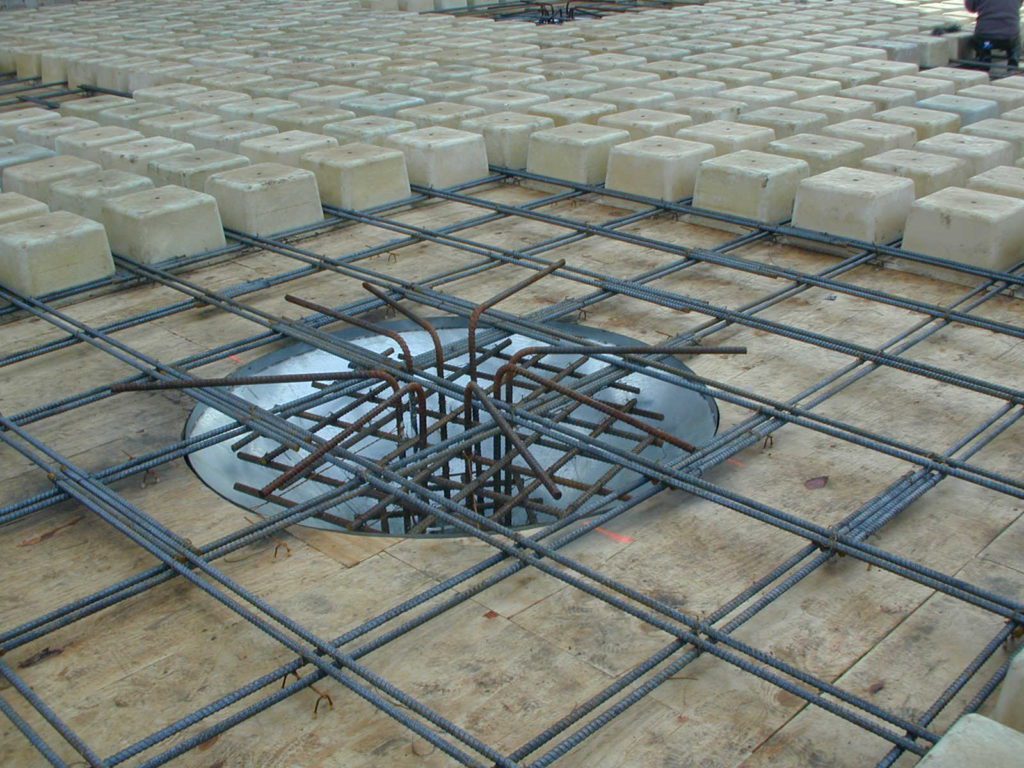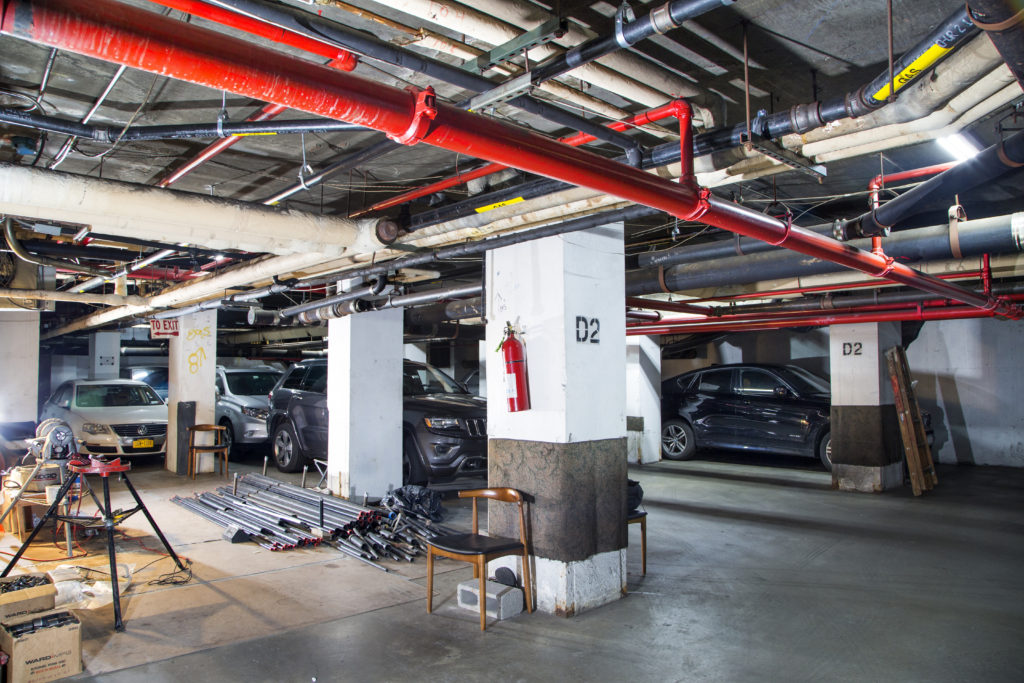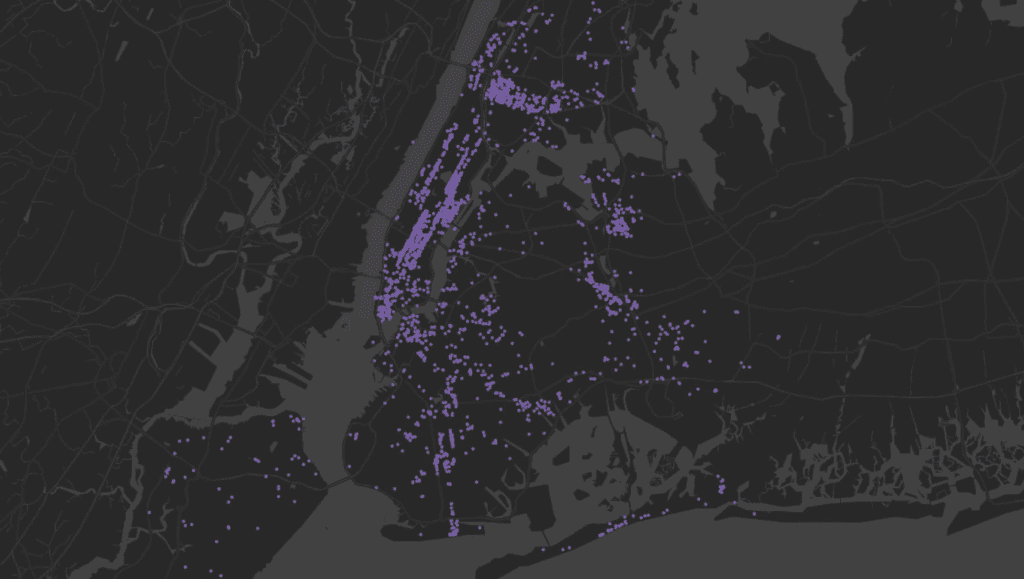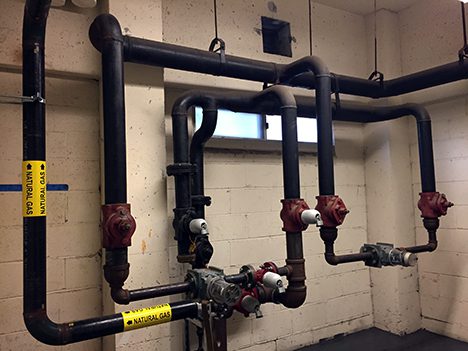RESOURCES / LOCAL LAWS
Local Law 97:
Greenhouse Gas Emissions Limits

History & Overview
Local Law 97 sets an emission limit for NYC’s largest buildings in an effort to combat climate change and reduce carbon emissions. Enacted in 2019 as part of the Climate Mobilization Act, this legislation is a significant component of the city’s plan to achieve an 80% reduction in citywide emissions by 2050. Nearly 70% of New York City’s carbon emission can be traced back to the fossil fuels used to heat, cool and power its buildings. LL97 addresses this issue by setting stringent carbon emission limits for the city’s largest buildings.
Compliance
Dates & Deadlines
- Emissions will be calculated using benchmarking data, starting with 2024 utility data.
- Annual fines for buildings that do not meet the 2024 deadline will begin in 2025.
- Emission caps will become more stringent every 5 years.
- LL97 first report due 5/1/25, with yearly reporting due every May 1st
Covered Buildings
- Buildings over 25,000 gross square feet
- Two or more buildings on the same tax lot that together are over 50,000 gross square feet
- Two or more buildings owned by a condo association that are governed by the same board of managers and that exceed 50,000 gross square feet
Compliance Pathways
- Your building emissions are below the limits set in LL97
- Implement Carbon Reduction Measures to reduce emissions below the limit
- i.e. Envelope improvements, HVAC upgrades, Lighting upgrades
- Purchase Renewable Energy Credits (RECs) to offset emissions
- Engage in 'good faith efforts' to comply with the LL97, including implementing a decarbonization plan
- Upgrade your building systems to meet the "beneficial electrification" requirements
Emissions Analysis
One way to reduce your building emissions is to make improvements that increase energy efficiency or introduce distributed energy resources. Beginning with understanding where your current emissions are at and what it will take to comply now, or in the future.
Square Footage Measurements
A key component to Local Law 97, is having the correct building square footage reported. Occasionally, the square footage is incorrectly listed with the DOB leading to incorrect, high fines. HLZAE can undertake building square footage measurements and subsequent confirmations to the DOB with the goal of confirming a more accurate (reduced) square footage, so any possible fines can be reduced.
Space Requirement
Every single space within your building must be accounted for. This includes spaces such as ground-floor retail tenants and even parking garages. Under Local Law 97, different space types will be subject to different emission limits. The City has published a list of nearly 60 space classifications and their respective carbon caps for 2024-2029. Building owners and boards will be held responsible for accurate reporting.
From the Outside In
Once the building facade has been thoroughly evaluated, taking a look at your building’s energy systems is the next best step. This can be done with an energy audit (which may have been completed already under Local Law 87). During this review, every aspect of your building’s internal systems needs to be examined and reviewed to find any potential opportunities to be repaired.
Fees & Penalties
- • For building owners who exceed their emissions limit, the fine is $268 for each metric ton over the building's established limit
- • For building owners who fail to file a report, the fine is $0.50 per building square foot, per month
- • For building owners who provide false statements on their report, there is a fine of $500,000
Example of Energy Upgrades
Path to $0 fines for 2030
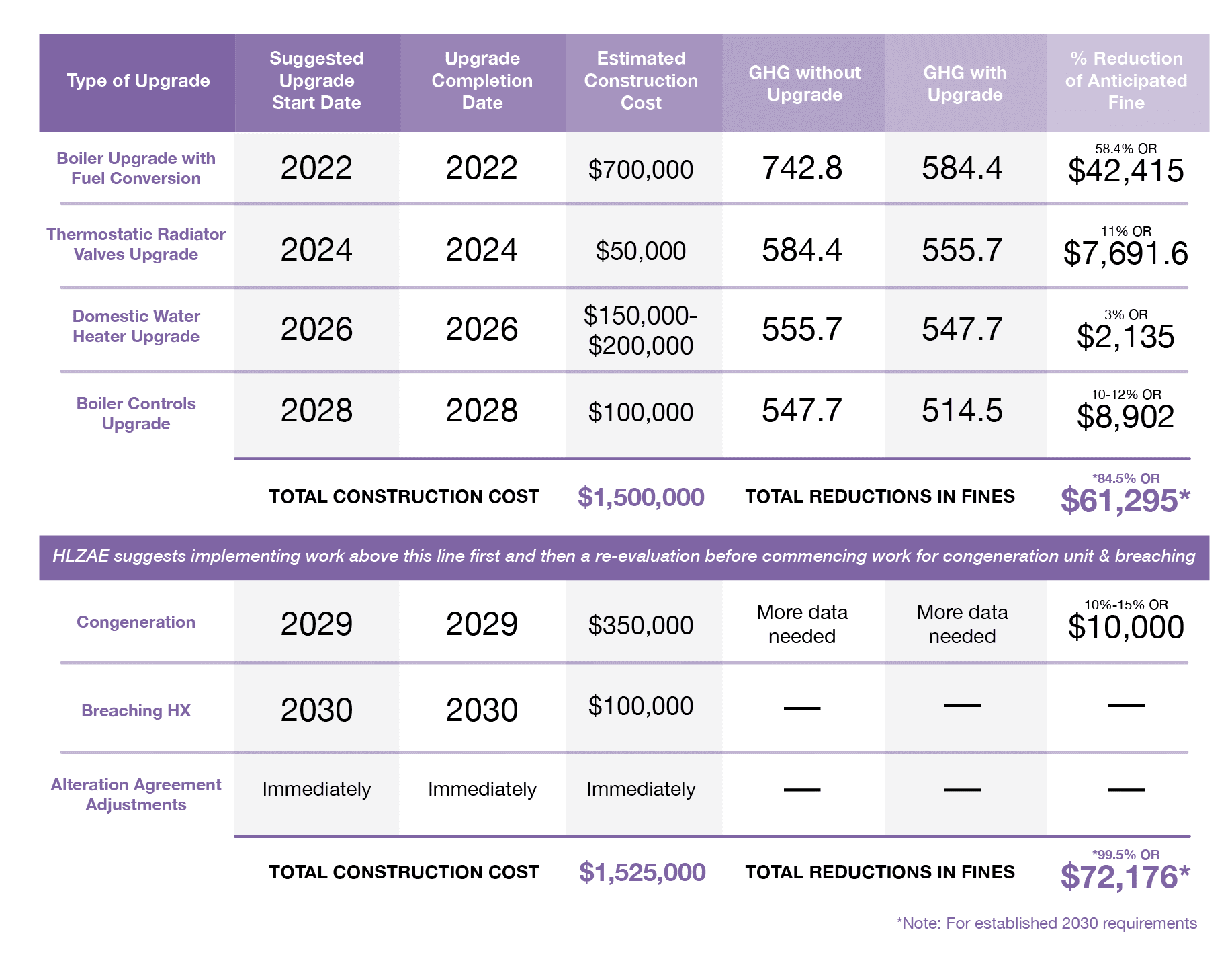
Incentives
- Utility Rebates
- State/Federal Tax Credit for Decarbonization Projects
- IRA Tax Credits
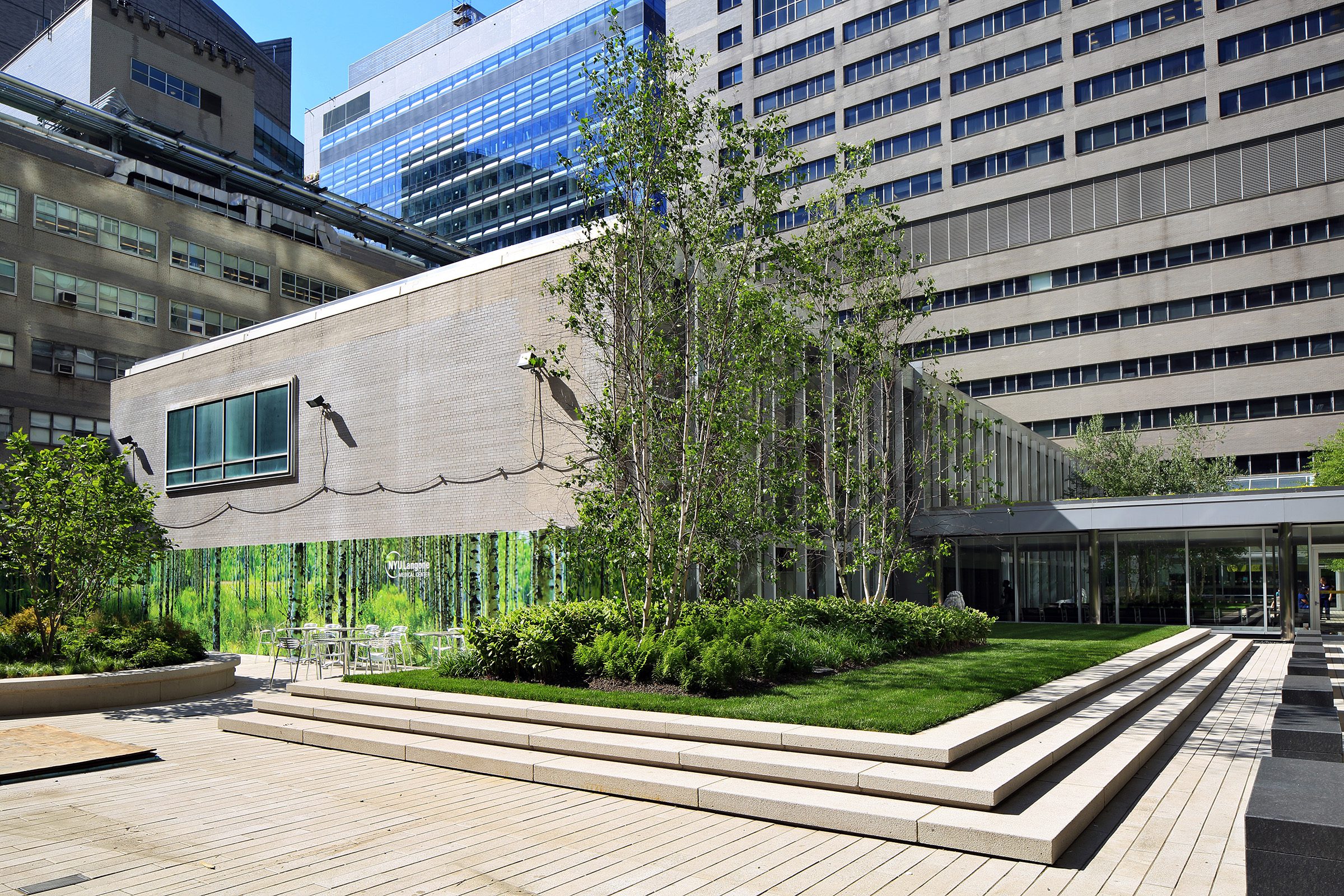
HLZAE LL97 Services
HLZAE’s experience with Energy Audits combined with our Full-Service Engineering Design and Consulting services will ensure your goals of meeting requirements for Local Law 97, Sustainable Operation, and Reduced Operating Costs are met. Our engineering project managers are true partners in managing your building’s carbon reduction projects.
Our offerings include:
- Building Decarbonization Strategies
- LL97 Investigations and Filings
- Energy Audits
- MEP System Upgrades
- Fenestration Upgrades

